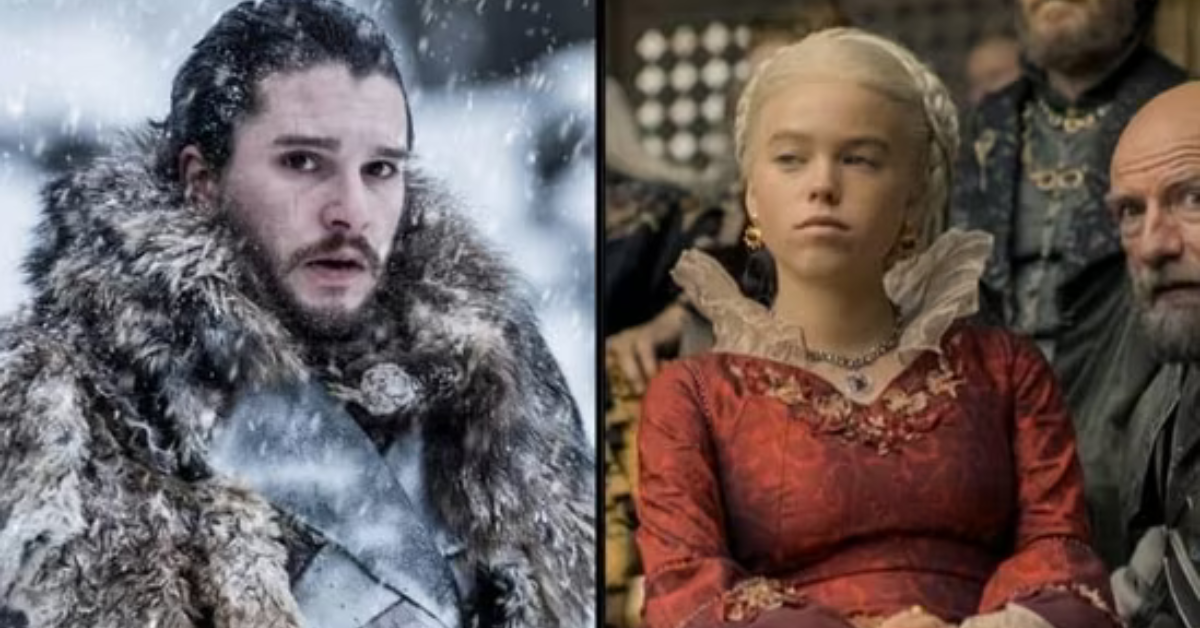Kit Harington, renowned for his role as Jon Snow in HBO’s epic fantasy series “Game of Thrones,” has candidly shared his decision to avoid watching the spin-off, “House of the Dragon.” In a recent interview with The Associated Press, Harington confessed that his prolonged time spent in the world of Westeros makes it difficult for him to engage with the new series.
A Strong Connection to Westeros
Harington’s reluctance stems from his deep and personal connection to the original series, which spanned eight seasons and became a cultural phenomenon. “I just can’t watch it,” he admitted. “I think for me it’s just I’ve spent too long there.” This sentiment highlights how deeply the role of Jon Snow and the experience of working on “Game of Thrones” affected him.
The Impact of Immersion
Harington’s decision reflects the emotional toll that long-term involvement in a single project can have on an actor. Having spent a decade portraying Jon Snow, Harington’s immersion in the world of Westeros was intense. This level of engagement can lead to a form of burnout, making it challenging for actors to revisit or engage with the franchise in other forms.
Emilia Clarke’s Similar Sentiments
Harington is not alone in his hesitance to revisit the “Game of Thrones” universe. Emilia Clarke, who famously portrayed Daenerys Targaryen, has also expressed her discomfort with watching the spin-off series. In an interview with Variety last year, Clarke compared the experience to attending a “school reunion that’s not your year,” describing it as “so weird” and “so strange.”
The Strange Feeling of Distance
Clarke’s analogy underscores the emotional distance that actors can feel from their past roles. Just as one might feel disconnected from a reunion of a different year, revisiting the world of “Game of Thrones” through “House of the Dragon” can evoke a sense of estrangement for those who lived and breathed the original series for years.
“House of the Dragon” to Conclude with Season 4
In related news, HBO has confirmed that “House of the Dragon,” the prequel to “Game of Thrones,” will conclude with its fourth season. This announcement was made by showrunner and co-creator Ryan Condal during a press conference about the Season 2 finale.
Details on Future Production
Condal revealed that the third season is currently in development and will commence production in early 2025. Discussions regarding the number of episodes for Season 3 are ongoing, but Condal expects the season to follow a similar structure to Season 2, which consisted of eight episodes. This consistency in pacing suggests that the show’s narrative and style will remain aligned with its established formula.
Upcoming Projects in the “Game of Thrones” Universe
While “House of the Dragon” is set to end after its fourth season, HBO is not finished exploring the rich lore of George R.R. Martin’s world. The network is also developing a new prequel series, “A Knight of the Seven Kingdoms,” based on Martin’s “Tales of Dunk and Egg.”
The New Prequel: “A Knight of the Seven Kingdoms”
Set approximately 100 years before the events of “Game of Thrones,” “A Knight of the Seven Kingdoms” will delve into the history and adventures of Ser Duncan the Tall and his squire, Egg. This new series promises to expand the “Game of Thrones” universe, offering fans more depth and context to the world they have come to love.
Fan Reactions and Future of the Franchise
The announcements surrounding “House of the Dragon” and its eventual conclusion, along with the new prequel series, have sparked varied reactions among fans. While some are eager to see the continuation and expansion of the lore, others, like Harington and Clarke, reflect a more complex relationship with the franchise.
The Franchise’s Legacy
As “House of the Dragon” approaches its final seasons and new projects are developed, the legacy of “Game of Thrones” continues to evolve. The franchise’s ability to generate new content while reflecting on its past success speaks to its enduring impact on popular culture. Fans and creators alike remain deeply connected to the world of Westeros, even as they explore new narratives and characters.
Kit Harington’s and Emilia Clarke’s reluctance to engage with “House of the Dragon” highlights the profound impact that participating in a major franchise can have on an actor. As the “Game of Thrones” universe continues to expand with new prequels and spin-offs, the personal experiences of those who were deeply involved in the original series add a unique perspective to the ongoing legacy of Westeros. Whether through new adventures or reflective distance, the world of “Game of Thrones” remains a powerful and enduring force in the realm of entertainment.






